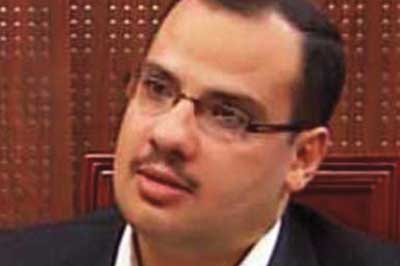Every Gazan who lives in Jordan must pay $300 to renew their passport. They must also pay for their medical treatment, whether they visit a government or private hospital, and even pay for their children’s school education if the UNRWA shuts down its facilities or reduces its services. Furthermore, it has no access to government aid.
There are some 140,000 Palestinians from the Gaza Strip, a group of people who are almost forgotten, and they mostly live in miserable and poverty-stricken refugee camps near Jerash, in the northern part of Jordan. There is a big difference between their legal status and the status of their Palestinian counterparts from the West Bank, who carry complete citizenship documents and can access essential services such as medical treatment and education.
The Gazans in Jordan are poorer than others because of the restrictions imposed on them regarding work. They are not allowed to work in the public sector and are not allowed to be employed in numerious jobs which are reserved for Jordanian citizens, such as medicine, engineering, pharmaceuticals, and other professions that require membership in trade unions. Such association is reserved for citizens only.
READ: Jordan: 2,472 people were arrested on drug cases in September
Although the Gazans are below the poverty line in Jordan, they must still pay the costs and expenses for their treatment. There are also growing fears that the UNRWA, which runs the schools their children study in, will collapse, which will mean they will have to pay for their children to go to school. Furthermore, the universities in the country treat them as international students and demand the tuition be paid in US dollars, causing them to spend even more on education. The Gazans in Jordan are forced to pay 200 JD ($300) to renew their passports; passports that cannot be left expired because they are “temporary”. This means that neglecting to renew them will mean losing the passport in one way or another. This means that everyone is forced to pay this amount at least once every five years (amounting to $5 per month per person).
The situation of the Palestinians in general, wherever they are, is miserable, and the people of Gaza are more miserable than others, whether inside or outside the Gaza Strip. Although the situation of Palestinians in Jordan remains better than elsewhere, this does not mean that they are not required to reconsider their status and improve it. This is especially true because we are talking about a small group of people. The conditions of the Gazans in Jordan are similar to that of the Bidoons in some Gulf countries. When we talk about 140,000 people in a land inhabited by more than 10 million people, we are talking about a very small number, and therefore improving their living conditions will not affect the overall economic situation in the country. Deciding to provide them with free medical treatment in state hospitals will not increase the country’s burdens, as not every one of the 140,000 Gazans is ill and the more fortunate of them will voluntarily resort to returning to the Gaza Strip for treatment. This ultimately means that we are talking about a minute cost that cannot be seen with the naked eye.
Improving the situation of the Gazans in Jordan serves the Palestinian cause and reinforces Jordan’s role in supporting the perseverance of the Palestinian people. It also helps the resistance of the American-Israeli project, which aims to pass the “deal of the century”, a deal, that was and is still strongly rejected and opposed to by Jordan.
The views expressed in this article belong to the author and do not necessarily reflect the editorial policy of Middle East Monitor.

![Jordanian flag [Salah Malkawi/Anadolu Agency]](https://i0.wp.com/www.middleeastmonitor.com/wp-content/uploads/2017/04/20170405_2_22892208_20700765.jpg?fit=920%2C624&ssl=1)







